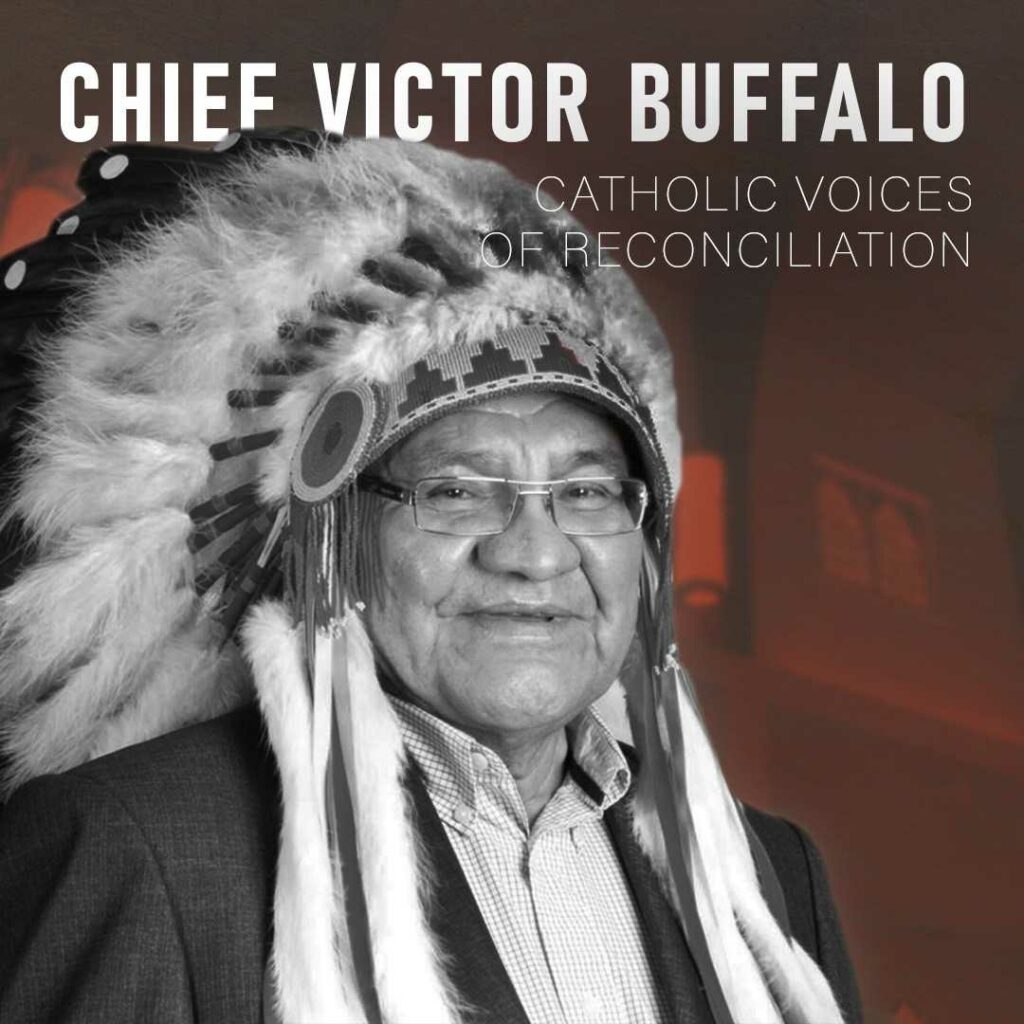Catholic Voices Of Reconciliation is a series of interviews with Catholic First Nation individuals who were a part of Pope Francis’ visit to the Edmonton Archdiocese. We asked each of them three questions about their experience as both followers of Christ and First Nations people and practical ways that local Catholics can support truth and reconciliation.
Chief Victor Buffalo is a former chief of the Samson Cree Nation in Maskwacis. Both Chief Buffalo and his parents attended Ermineskin Residential School. He is a parishioner at Our Lady of Seven Sorrows Catholic Church. Chief Buffalo was present when Pope Francis visited Maskwacis during his 2022 Canadian Papal visit. The Holy Father apologized for the Church’s role in residential schools at the site of the former Ermineskin school.
What is one way that the Pope’s visit has impacted you?
When I heard the pope apologize in Rome, I was at home by myself, I live alone. And when I heard him say ‘I’m sorry’, it really affected me. I cried. And when he was at Maskwacis and said the same thing, I just cried again. It really affected me.
I was thinking of my mother when I heard [his apology]. My mother was a very strict Catholic. She took a one year novitiate to be a nun. She was the one who brought me up. . . under the Catholic faith.
I think [the apology] it would have very much affected her because she was one in the era of the so-called atrocities of the residential schools. So was my Dad. I know both of them would have felt the apology.
What is one way that the efforts towards truth and reconciliation has blessed you personally?
In my own life, I’m trying to understand what impact this (apology) is going to have totally. I’m trying to understand the [Truth and Reconciliation Commission] Calls to Action, they are really directed at the federal government and the people that are close to Native people. . . it’s going to be a long process, a lot of education, a lot of mending that needs to take place.
Our people have to also understand that the responsibility has now shifted towards us. We have to get up on our own two feet and start asserting our rights, our rights as individuals. So much is happening on our reserves that we need to address, a lot of violence and misunderstanding. . . Our people [Samson First Nation] are very diverse, in the way that they live
What is one practical way that people in your local community can support the continued healing between First Nations people and the Church?
I think we need to understand what actually happened [with residential schools].
I believe that people are going to start moving. One of the prophecies that our elders used to tell us is that our people are going to rise again. I think this is the start of it. For the pope to come to Maskwacis, it is unheard of.
I see in (Our Lady of Seven Sorrows) church, we have a new priest, Fr. Garry LaBoucane and he’s Metis. He understands us. There have been more white people coming to our church recently. And I think that’s one of the reasons why: they want to learn, they want to be with us and they want to share with us, our feelings.
Jenny Connelly – Archdiocese of Edmonton

